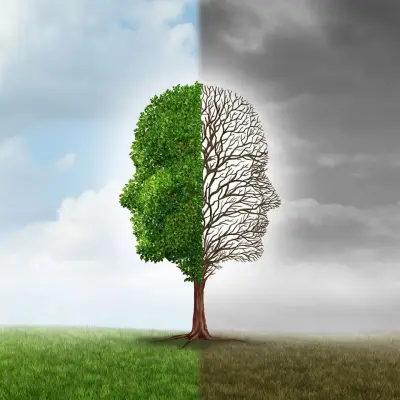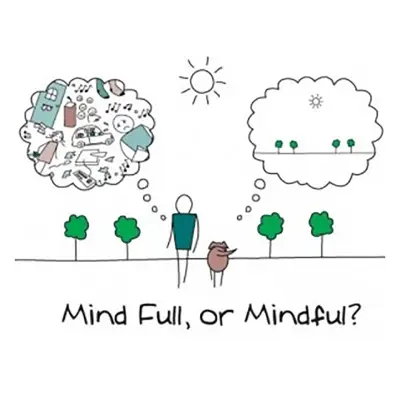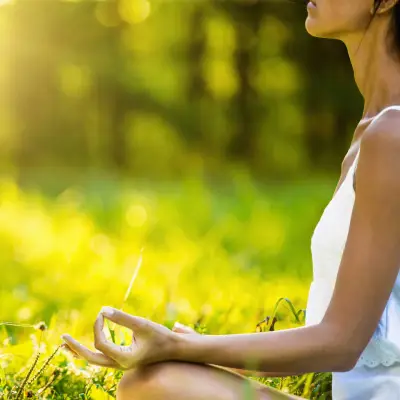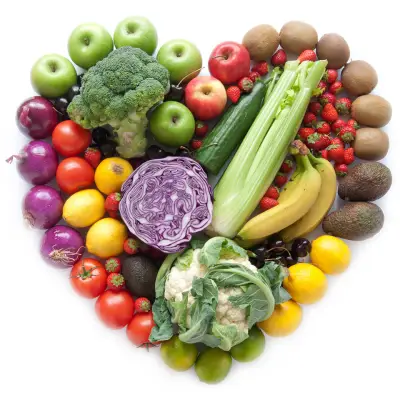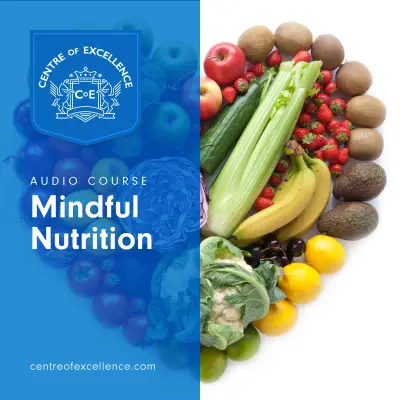Gratitude is a powerful emotion that can transform your life. It's about appreciating what you have rather than always reaching for something new, hoping it will make you happier.
This blog post unravels the concept of gratitude, teaching you how to weave it into your daily life. Whether you want to uplift your mood or find a deeper sense of fulfilment, understanding and practising gratitude is a beautiful step forward.
Jump to:
What is Gratitude?

Gratitude means acknowledging the good in your life. It's an appreciation for the aspects of life that bring you joy and fulfilment, from the air you breathe to the connections you share with others. This heartfelt acknowledgement shifts your focus from what's missing in your life to the abundance surrounding you. By embracing gratitude, you develop a more optimistic and contented perspective, balancing life's challenges with a deep appreciation for its gifts.
Why Practicing Gratitude Matters
Gratitude doesn't just make you feel good; it has clear benefits. Regular practice improves mental health, increases happiness, and enhances physical health. Studies have shown that feeling grateful can lead to lower levels of stress and depression.
How to Be More Grateful in Everyday Life

Embracing gratitude in everyday life can transform your routine into a journey of positivity and appreciation. This section explores practical ways to develop a grateful mindset, enhancing your daily experiences and interactions.
1. Start Your Day with Gratitude
Begin each morning by thinking of three things you're grateful for. These things don't have to be grand or extraordinary; they can be as simple as a peaceful night's sleep, the aroma of your morning coffee, or a moment of quiet before the day begins. This practice sets a tone of positivity and helps you develop a habit of appreciating the good in every situation.
2. Keep a Gratitude Journal
Write down things you're thankful for. This could be as simple as a delicious meal or as significant as a friend's kindness. Writing down what you appreciate helps reinforce positive thoughts and feelings. The key is consistency; regularly updating your journal encourages you to pay attention to the good in your life, deepening your sense of gratitude and satisfaction.
3. Express Gratitude to Others
Expressing gratitude to the people in your life can strengthen relationships and spread positivity. A heartfelt "thank you," a note of appreciation, or a small gesture can make a clear difference in someone's day. This practice enriches your relationships and reinforces a culture of gratitude and kindness around you.
4. Find Gratitude in Challenges
Try to find a silver lining in difficult situations. It might seem difficult to identify things to be grateful for during hard times, but it's a powerful exercise in resilience and perspective. This doesn't mean ignoring the hardship or pretending it doesn't exist. Instead, it's about finding a balance between acknowledging the difficulty and recognising any learning, growth, or strength. This could be as simple as being thankful for your perseverance through tough times or appreciating the support you received.
Gratitude and Mental Health
Gratitude can have a huge impact on your psychological well-being. It enhances mental health by fostering a greater sense of happiness and reducing negative emotions.
Gratitude as an Antidote to Negative Emotions
Gratitude helps combat negative emotions such as envy, resentment, and regret. These feelings often come from comparisons with others or dwelling on missed opportunities and inadequacies. By shifting focus to what you are thankful for, gratitude encourages a more supportive and compassionate mindset towards yourself and others. This shift offers a broader, more balanced perspective that highlights the positives in your life.
Gratitude and Depression
While it's not a cure, practising gratitude can help manage symptoms. Depression often involves a focus on past regrets or anxieties about the future, contributing to a cycle of negative thinking. Integrating gratitude into daily life encourages a shift towards the present moment, acknowledging and appreciating what is going well. Such a practice can lighten the emotional load of depression by breaking the cycle of exclusively negative thoughts.
It's important to note that while gratitude can be a helpful tool, it is not a substitute for professional treatment in cases of clinical depression. However, as part of a broader approach to mental health, practising gratitude can contribute significantly to emotional well-being and resilience.
How to Practice Gratitude When Life Is Hard
Practising gratitude during challenging times can seem difficult, yet it's often when it's most needed and can be most impactful. It can serve as a beacon of hope and resilience, guiding you through life’s tough times.
- Find Gratitude in Small Things: In the midst of difficulties, it's easy to overlook the small moments of joy and relief. It could be the warmth of the sun on your face, a kind word from a colleague, or the comfort of your favourite song. By acknowledging and cherishing these instances, you can find pockets of happiness and peace amidst turmoil.
- Reflect on Difficult Times: Reflecting on past challenges and how you've navigated through them is a powerful exercise in gratitude. Think back to difficult times and acknowledge how you overcame them. This reflection helps you appreciate your ability to persevere and grow through the hard times. It provides perspective, reminding you that just as you have overcome past difficulties, you have the strength to handle current ones.
- Appreciate Your Support Network: Lean on and appreciate your support network. This could be family, friends, colleagues, or the wider community. Acknowledge how they provide support, whether emotional, practical or simply their presence. Expressing gratitude towards them strengthens your relationships and reinforces your awareness of not being alone in your struggles. It's a recognition that even in hard times, there is support and love around you. This acknowledgement can be incredibly uplifting and reminds you of the good in your life amidst the challenges.
Step-by-Step Guide for Gratitude Meditation
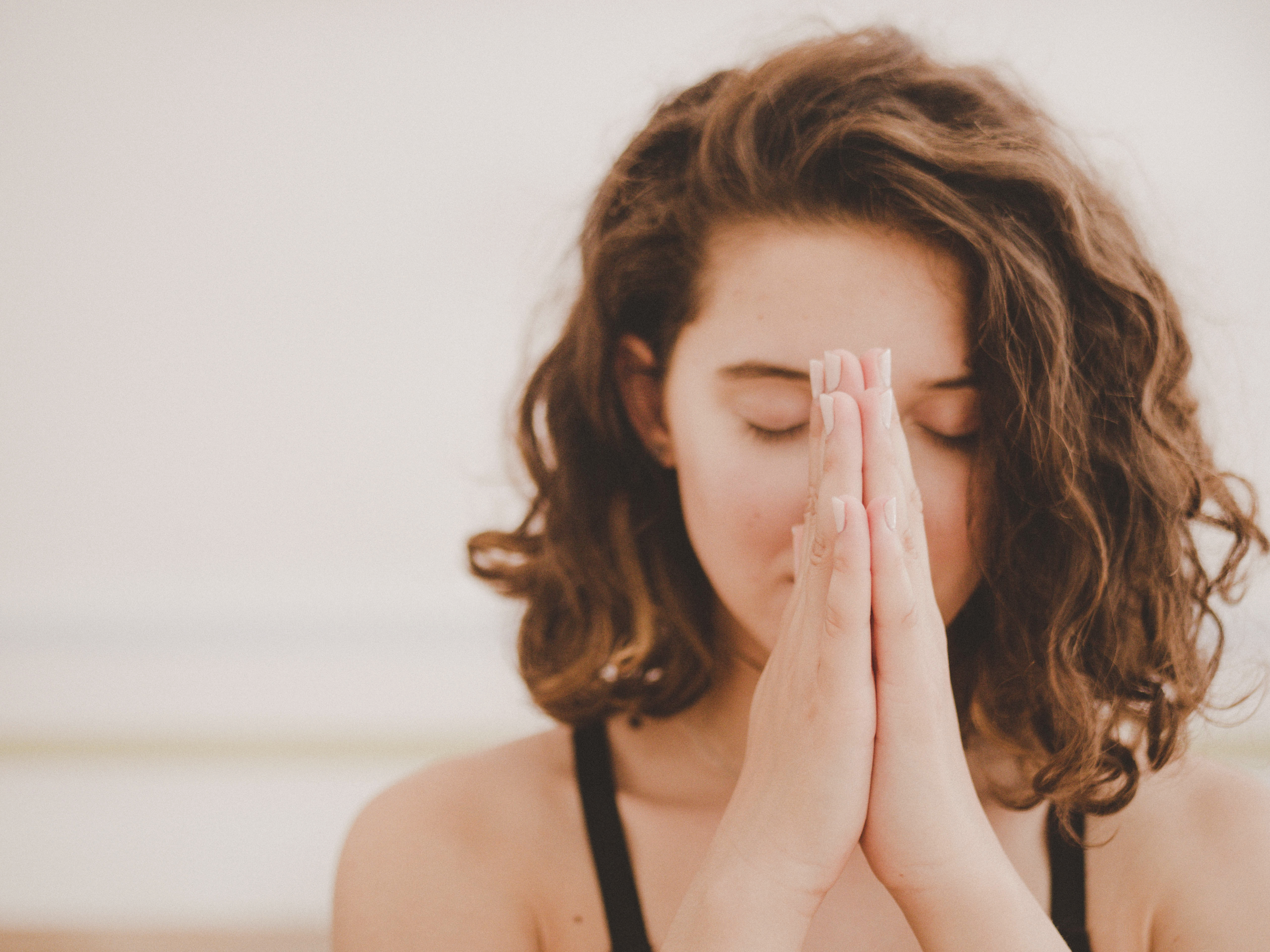
Practising gratitude meditation is a transformative experience, helping you to acknowledge and appreciate the good in your life. Here's a simple step-by-step guide to help you begin:
Step 1: Find a Quiet Space
Locate a peaceful spot where you won’t be disturbed. This could be a quiet room in your home, a garden, or even a secluded part of a local park. The key is to find a place where you feel relaxed and can focus without interruptions.
Step 2: Get Comfortable
Sit or lie down in a comfortable position. You can sit on a chair with your feet flat on the ground, on a cushion, or on the floor with your legs crossed. Ensure that your back is straight but not stiff. The aim is to be comfortable enough to stay still yet alert during the meditation.
Step 3: Close Your Eyes and Relax
Gently close your eyes. Take a moment to notice how your body feels. If there are areas of tension, consciously try to relax them. Allow yourself to be still, letting go of the day’s worries and tasks.
Step 4: Focus on Your Breath
Begin to focus on your breathing. Notice the sensation of air entering and leaving your nostrils or the rise and fall of your chest or abdomen. You don't need to change your breathing pattern; just observe it. This helps ground you in the present moment.
Step 5: Think of What You Are Grateful For
Start by thinking of basic things that you are grateful for. This could be as simple as the air you breathe, the comfort of your home, or the presence of a loved one. Allow yourself to feel gratitude for these things.
Step 6: Expand Your Focus
Gradually expand your focus to include other aspects of your life. Think about your achievements, moments of joy, and experiences that have brought you happiness. Remember to acknowledge the challenges you’ve overcome and the lessons they’ve taught you.
Step 7: Embrace the Feelings of Gratitude
As you think of each thing you’re grateful for, allow yourself to really feel the gratitude. Notice any sensations in your body, perhaps a warmth in your heart or a smile on your face. Let these feelings of thankfulness fill you.
Step 8: Breathe in Gratitude, Breathe out Negativity
With each inhale, imagine yourself breathing in gratitude and positivity. With each exhale, picture yourself releasing negativity and stress. Continue this for a few minutes.
Step 9: Reflect and Appreciate
Take a few moments to reflect on the gratitude exercise. Acknowledge and appreciate the positive emotions you’ve experienced during this meditation.
Step 10: Gently Return
When you’re ready, gently bring your focus back to your breathing. Slowly become aware of your surroundings. Wiggle your fingers and toes, and when you feel ready, open your eyes.
Step 11: Carry Gratitude With You
As you conclude your meditation, set an intention to carry this sense of gratitude with you throughout your day. Remember, gratitude is not just for meditation; it's a mindset to embrace in all aspects of life.
Gratitude in Mindful Movement
Incorporating gratitude into physical activities can enhance the experience and benefits of exercise. This involves being mindful and present during the activity and acknowledging the efforts and capabilities of your body. For example, while jogging, you might express silent thanks for your legs that carry you, the lungs that breathe for you, and the heart that beats steadily.
This practice helps you appreciate your body's strength, resilience, and the workings that allow you to move and feel. By doing so, you develop a deeper appreciation and connection with your body. This mindful movement gratitude can extend to other activities like yoga, dancing, or simple daily tasks like walking or stretching. The key is to remain present and acknowledge and thank your body for its efforts and capabilities.
The Benefits of Practicing Gratitude

Gratitude can actually change the brain. It activates areas associated with positive emotion and reduces stress hormones. Let’s look at some benefits of practising gratitude:
- Enhances Mental Health: Regularly practising gratitude can significantly improve overall mental health, reducing symptoms of depression and anxiety.
- Boosts Happiness: Gratitude increases happiness and contentment by focusing on positive aspects of life.
- Reduces Stress: It has been shown to lower stress levels and can help manage the symptoms of stress-related disorders.
- Improves Sleep Quality: Expressing gratitude can lead to better sleep, as it helps reduce negative thoughts that might interfere with sleep.
- Strengthens Relationships: Showing appreciation and gratitude strengthens bonds with others, leading to healthier and more fulfilling relationships.
- Promotes Emotional Resilience: Gratitude helps build emotional resilience, allowing you to better navigate through tough times.
- Enhances Self-Esteem: Practicing gratitude can increase a sense of self-worth and self-esteem.
- Encourages Positive Behaviors: Grateful people are more likely to engage in health-promoting behaviours like regular exercise and healthy eating.
- Improves Physical Health: Grateful people often experience fewer aches and pains and report feeling healthier than others.
- Increases Optimism: A gratitude practice fosters a positive outlook on life, leading to a more optimistic attitude.
- Fosters a Sense of Connectedness: Feeling grateful can enhance your connection to the larger world and other people.
- Reduces Materialism: Gratitude can help shift focus from what you lack to what you already have, reducing the need for material possessions to find happiness.
- Promotes Mindfulness: It encourages living in the moment and appreciating the present, a key aspect of mindfulness.
- Activates Positive Brain Areas: Practicing gratitude activates brain regions associated with positive emotion and reward, enhancing joy and satisfaction.
- Decreases Negative Emotions: Gratitude reduces envy, resentment, frustration, and regret, leading to a more harmonious emotional life.
12 Gratitude Quotes
Incorporate these inspiring gratitude quotes into your life as reminders to stay thankful:
- "Gratitude turns what we have into enough." – Anonymous.
- "Gratitude is not only the greatest of virtues but the parent of all others." – Marcus Tullius Cicero.
- "The more grateful I am, the more beauty I see." – Mary Davis.
- "Gratitude makes sense of our past, brings peace for today, and creates a vision for tomorrow." – Melody Beattie.
- "Gratitude is the fairest blossom which springs from the soul." – Henry Ward Beecher.
- "Let us be grateful to people who make us happy; they are the charming gardeners who make our souls blossom." – Marcel Proust.
- "Joy is the simplest form of gratitude." – Karl Barth.
- "Gratitude is the healthiest of all human emotions. The more you express gratitude for what you have, the more likely you will have even more to express gratitude for." – Zig Ziglar.
- "When I started counting my blessings, my whole life turned around." – Willie Nelson.
- "Reflect upon your present blessings, of which every man has plenty; not on your past misfortunes, of which all men have some." – Charles Dickens.
- "Gratitude can transform common days into thanksgivings, turn routine jobs into joy, and change ordinary opportunities into blessings." – William Arthur Ward.
- "Gratitude opens the door to the power, the wisdom, the creativity of the universe. You open the door through gratitude." – Deepak Chopra.
Recommended for you!
Best SellersEmbrace The Transformative Power of Gratitude With Our Course
Join us in exploring the depths of mental well-being through our Mindful Mental Health Diploma Course.
What to Expect
- In-Depth Understanding of Gratitude and Mindfulness: Dive into the intricate relationship between gratitude, mindfulness, and mental health, gaining a richer understanding of these essential life skills.
- Practical Gratitude Techniques: Learn practical ways to incorporate gratitude into your daily life, enhancing emotional well-being and resilience.
- Impact on Mental Health: Discover how gratitude and mindfulness can positively influence your mental health, offering strategies for managing stress and promoting happiness.
Special Offer
We are delighted to offer our Mindful Mental Health Diploma Course at a special rate of £29, saving you over £100!


